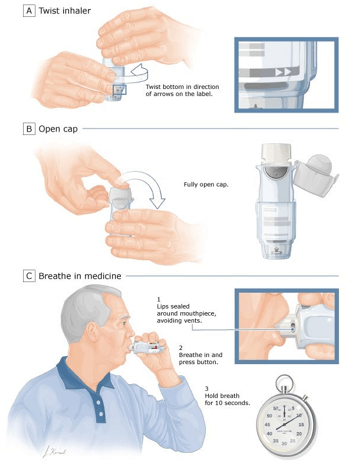A nurse is reinforcing teaching with a client who is at 12 weeks of gestation and has hyperemesis gravidarum. Which of the following client statements indicates an understanding of the nurse's instructions?
"I will try to eat balanced meals instead of only foods that appeal to my taste."
"I will eat or drink something every 2 to 3 hours throughout the day."
"I will eat a low-protein snack 30 minutes before going to bed each night."
"I will wait 1 hour after getting up in the morning to have breakfast." The correct answer is B
The Correct Answer is B
Hyperemesis gravidarum is a severe form of morning sickness characterized by persistent nausea, vomiting, and dehydration during pregnancy. It is important for the client to maintain proper nutrition and hydration.
Eating or drinking something every 2 to 3 hours throughout the day helps to keep the stomach relatively full, reducing the likelihood of experiencing severe nausea and vomiting due to an empty stomach. It also helps provide a steady supply of nutrients and fluids to support the client's health and the growing fetus.
Nursing Test Bank
Naxlex Comprehensive Predictor Exams
Related Questions
Correct Answer is C
Explanation
Albuterol is a bronchodilator medication that is commonly delivered through a metered-dose inhaler (MDI) to treat asthma and other respiratory conditions. Proper inhaler technique is crucial for effective delivery of the medication to the lungs.
Option (a) is incorrect because the client should actually tilt their head back slightly and breathe out fully before inhaling the medication.
Option (b) is incorrect because the client should take a slow, deep breath in while depressing the canister once.
Option (d) is incorrect because the client should hold their breath for 10 seconds after inhaling the medication to allow it to reach the lungs.
Therefore, the correct instruction for the nurse to include in the teaching is to instruct the client to close their mouth around the mouthpiece of the inhaler to ensure that the medication is delivered directly to the lungs.

Correct Answer is ["B","C","D"]
Explanation
It is not appropriate for the nurse to threaten the client's child with reporting for maltreatment without further assessment and evidence.
Asking the client's child to provide details regarding the client's fractured arm will provide additional information about the client's injury and help the nurse assess the potential for abuse or neglect.
Discussing respite care options with the client's child may help alleviate any caregiver stress or burden, and ensure the client's continued care and safety.
Speaking to the client privately will help establish trust and rapport, and allow the client to disclose any
concerns or issues that they may not feel comfortable sharing in front of their child.
Providing legal advice regarding power of attorney is not within the scope of nursing practice and should be referred to a legal professional. Additionally, the client's capacity to make decisions and appoint a power of attorney should be assessed before providing such advice.
Whether you are a student looking to ace your exams or a practicing nurse seeking to enhance your expertise , our nursing education contents will empower you with the confidence and competence to make a difference in the lives of patients and become a respected leader in the healthcare field.
Visit Naxlex, invest in your future and unlock endless possibilities with our unparalleled nursing education contents today
Report Wrong Answer on the Current Question
Do you disagree with the answer? If yes, what is your expected answer? Explain.
Kindly be descriptive with the issue you are facing.
